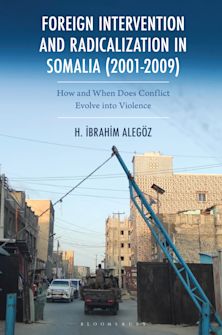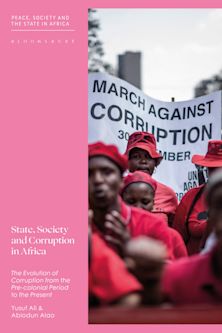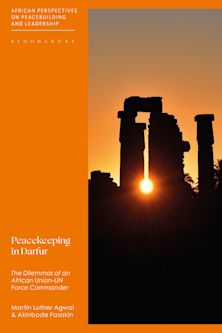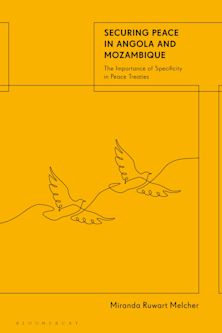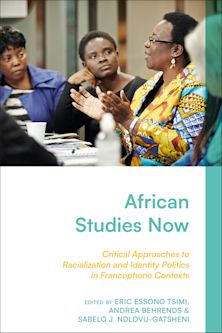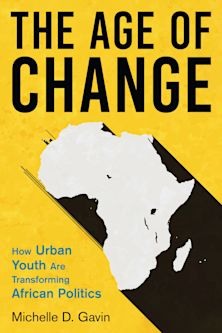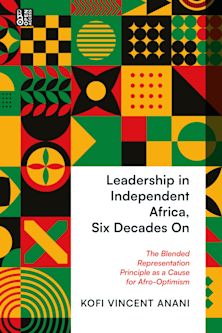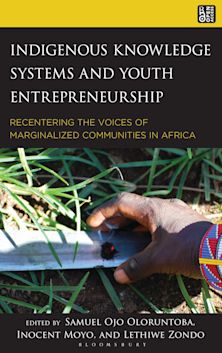- Home
- ACADEMIC
- Politics & International Relations
- African Politics
- Improving Disability Laws under Nigeria's Fourth Republic
Improving Disability Laws under Nigeria's Fourth Republic
Ten Measured Steps into the Future
Improving Disability Laws under Nigeria's Fourth Republic
Ten Measured Steps into the Future
You must sign in to add this item to your wishlist. Please sign in or create an account
Description
Persons living with disabilities (PLWDs) are imbued with inalienable human rights and have talents and potential that would aid in the Nigerian government’s unceasing pursuit of economic development. However, under Nigeria’s Fourth Republic since 1999, implementation of disability laws has been lethargic. In Improving Disability Laws under Nigeria's Fourth Republic: Ten Measured Steps into the Future, Philip C. Aka and Joseph Abiodun Balogun explore measures for improving the capacity of the Nigerian national government to implement regional and global treaties related to disability that are human rights-centric. They emphasize the need for a human rights focus and for the Nigerian government to implement laws that support the potential of PLWDs, including their contributions to socioeconomic development.
Table of Contents
List of Tables
List of Abbreviations
Introduction
1 Background History of Disability in Nigeria
2 Survey of the Global and Regional Regimes on Disability Pertaining to Nigeria
3 Record of the Nigerian National Government since 1999
4 Improving Disability Laws under Nigeria's Fourth Republic: Ten Steps into the Future
Conclusion and Prospects for the Future
References
Index
About the Authors
Product details
| Published | 08 Nov 2022 |
|---|---|
| Format | Ebook (Epub & Mobi) |
| Edition | 1st |
| Extent | 224 |
| ISBN | 9781666914184 |
| Imprint | Lexington Books |
| Illustrations | 1 maps; 12 tables; |
| Publisher | Bloomsbury Publishing |
About the contributors
Reviews
-
"Commonly, academics in their research projects provide theories to explicate major issues in society. Accordingly, these distinguished veteran scholars, professors Philip C. Aka and Joseph Abiodun Balogun, provide theories aimed at guaranteeing equal advantage of all human rights to persons with disabilities as contained in the UN Convention on the Rights of People with Disabilities, signed by Nigeria in 2007. They urge Nigeria to enshrine the preceding rights instrument in its constitution and ratify the Protocol of the African Charter on Human and Peoples’ Rights on this matter. In doing so, Nigeria would integrate these often-marginalized citizens with disabilities into its development agenda. Overall, this is an invaluable book on human rights discourse in Nigeria and the Global South.”
E. Ike Udogu, Appalachian State University
-
In a country beset by political, economic, religious, and socio-cultural challenges, laws and policies addressing the difficulties faced by various individuals who live with disabilities rarely capture the attention of decision-makers or even the general public. Yet, guided by international institutions and insights from religious texts and practices, persons living with different forms of disabilities are first and foremost human beings. And the role of a government is to protect each person based on their essential equality with other human beings, without regard to physical, mental, or economic conditions. Aka and Balogun should be commended for providing nuanced explanations for the different sources of disabilities and articulating the government’s role in legally equalizing opportunities for persons living with disabilities in Nigeria. Thus, as part of their preparations for assuming offices, elected officials in local, state, and national governments in Nigeria would benefit from reading this book. This book is also a welcome addition to assigned readings in courses on law, sociology, and politics in Nigeria.
Kelechi A. Kalu, University of California Riverside

ONLINE RESOURCES
Bloomsbury Collections
This book is available on Bloomsbury Collections where your library has access.












